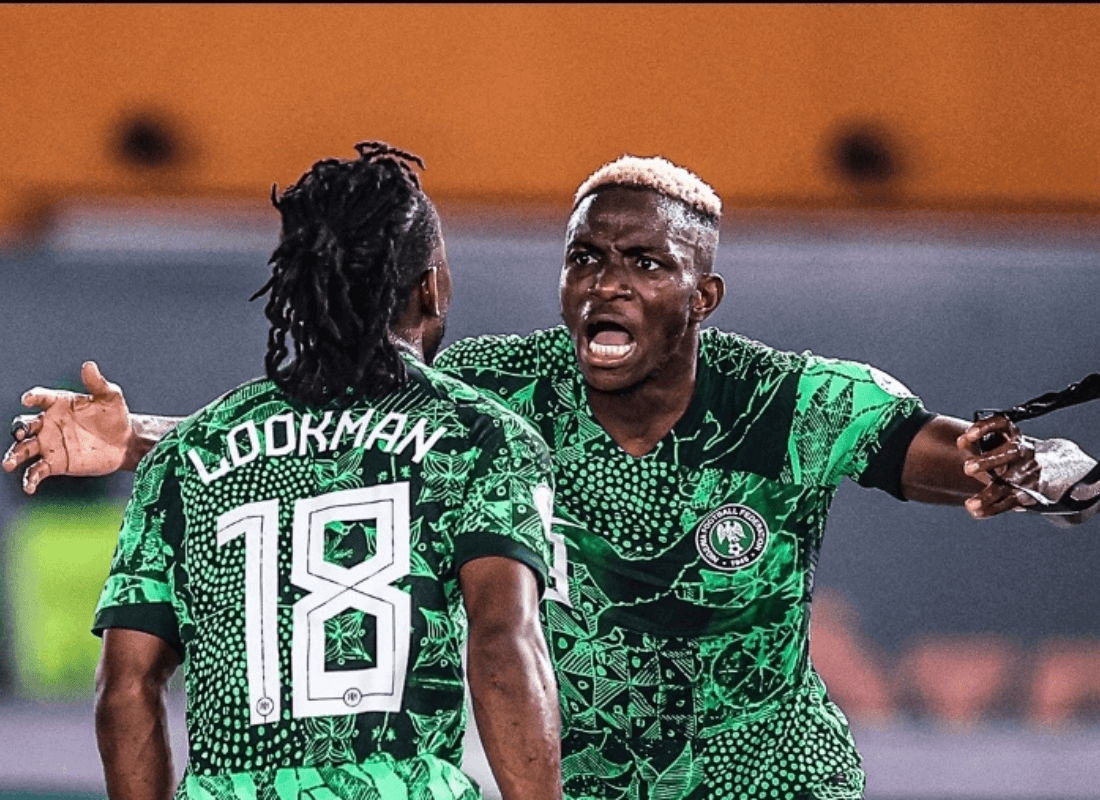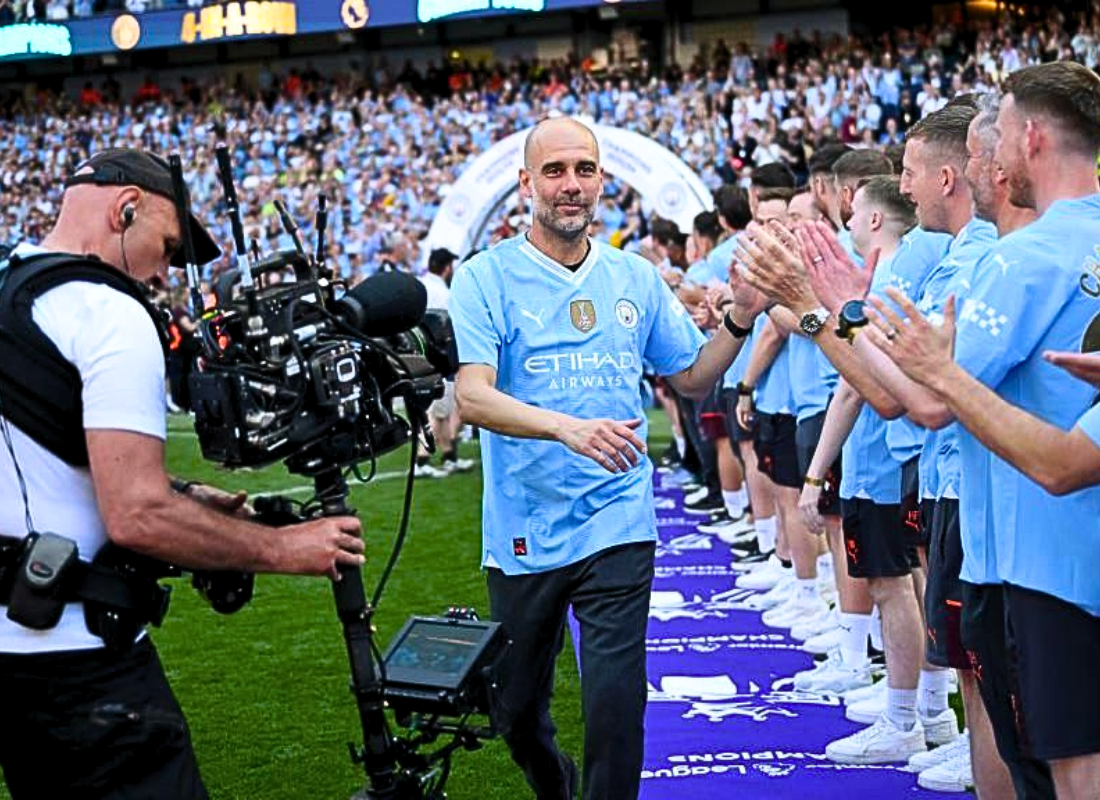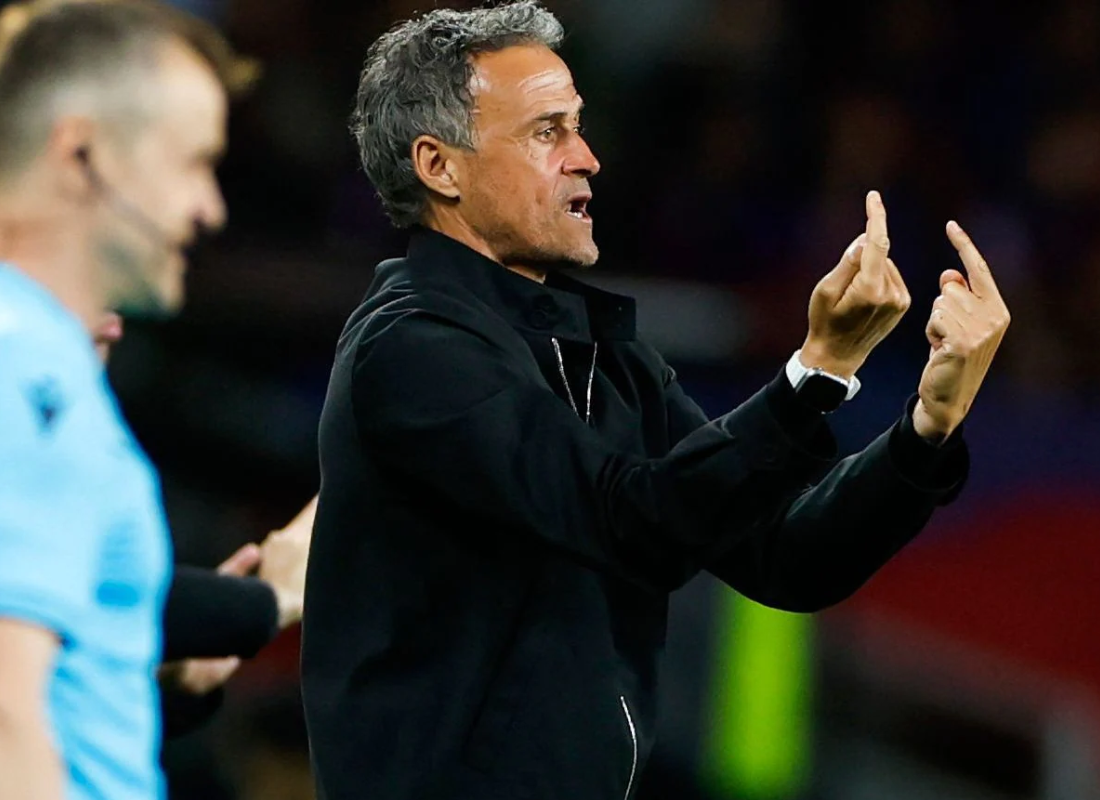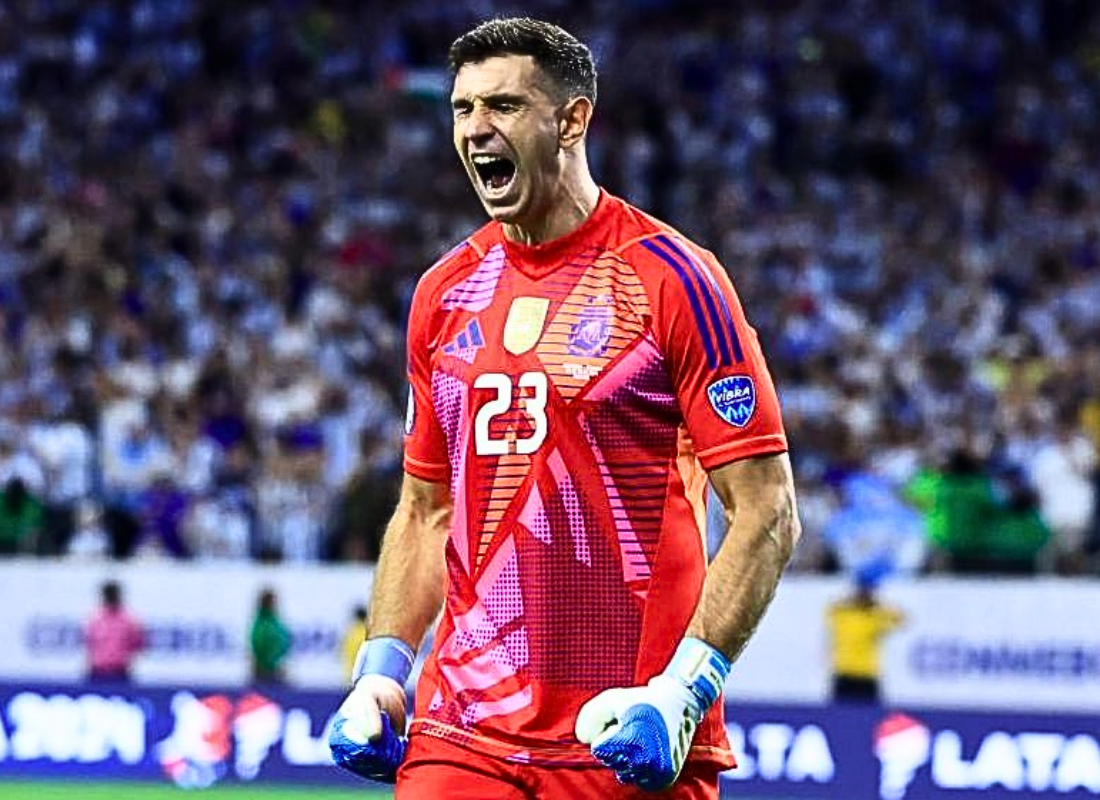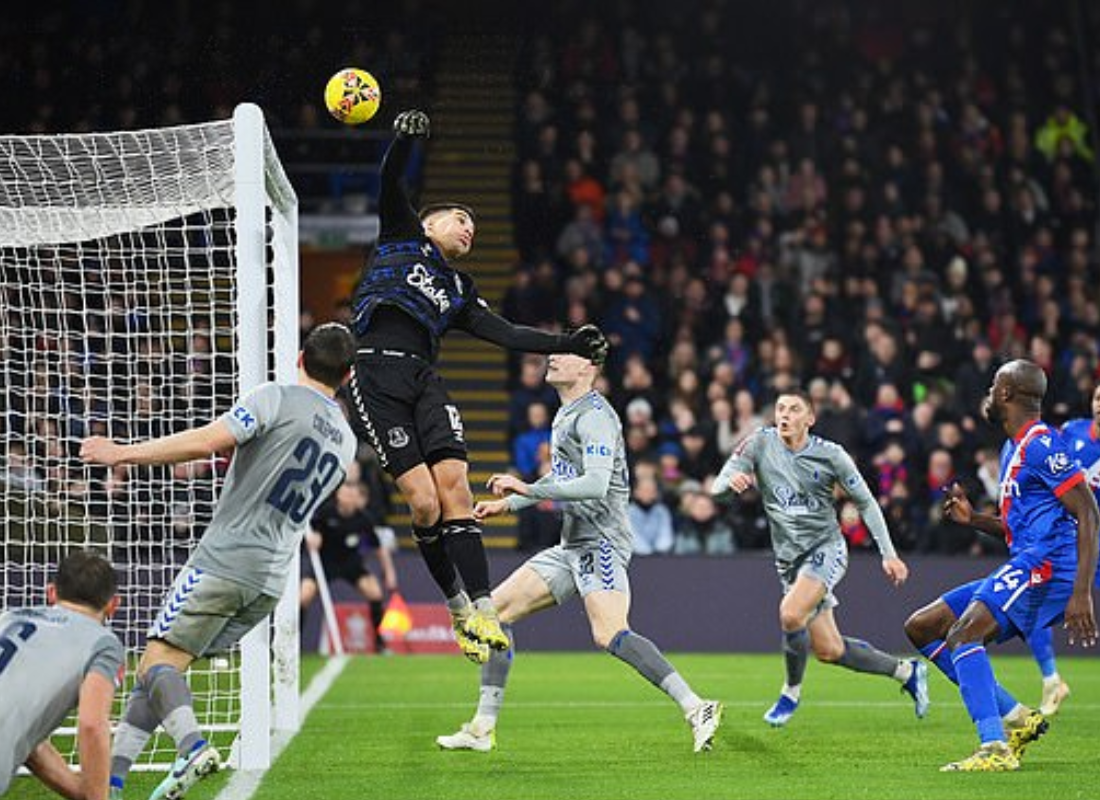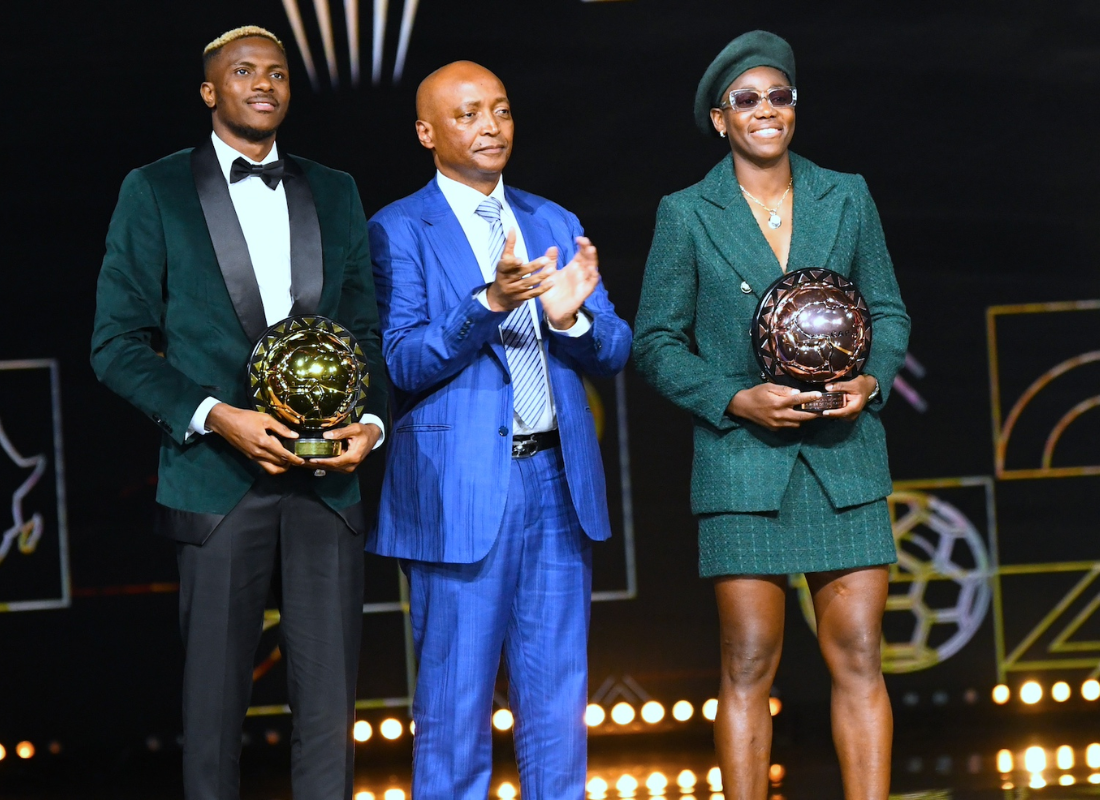Ademola Lookman took center stage as Nigeria’s Super Eagles showcased exceptional performances on all fronts, securing a 2-0 victory over longstanding rivals Cameroon in the 2023 Africa Cup of Nations round of 16 on Saturday.
The Atalanta forward scored twice in a commanding performance for the Super Eagles against a team that had posed challenges for them in the past. Once again, Victor Osimhen played a pivotal role in creating opportunities for Nigeria. In the first half, the Napoli player dispossessed Oumar Gonzalez, exhibited skillful maneuvers to evade the defender, and maintained composure to set up Lookman for a clear chance at Fabrice Ondoa’s goal.
In the 90th minute, Lookman positioned himself perfectly to connect with Calvin Bassey’s accurately placed cross, concluding a fantastic team effort and securing the victory. This success represents the third instance in which the Super Eagles have overcome and eliminated Cameroon in the knockout stages of AFCON. They now progress to the quarterfinals, where they will face Angola on Friday. The Palancas Negras secured a 3-0 win against Namibia in the earlier match. Here are the key highlights from another unforgettable victory for Nigeria.
Look how happy Victor Osimhen was for Nigeria goalscorer Ademola Lookman 🤗 pic.twitter.com/c60vIFduB1
— B/R Football (@brfootball) January 27, 2024
The Super Eagles, together with their enthusiastic supporters, have embraced a longstanding tradition of vibrant, attacking football. This style is marked by the flair of dynamic wingers like Adokiye Amiesimaka, Segun Odegbami, Finidi George, Ammanuel Amunike, and others who provided ammunition to formidable strikers such as Thunder Balogun, Rashidi Yekini, Daniel Amokachi, and more recently, Odion Ighalo. This attacking philosophy has captured the hearts of their fans and garnered admiration from outsiders, especially during their illustrious era in the 90s.
Despite possessing a wealth of attacking talent, Jose Peseiro has opted for a different approach, emphasizing a shift from the established attacking culture to defensive discipline as the foundation. This change was apparent in matches against Cameroon, Equatorial Guinea, and Ivory Coast during the group phase, and the Super Eagles appear to be thriving under this new framework.
Even against Cameroon’s Indomitable Lions, much like in previous encounters, Nigeria’s goal was rarely under threat. Goalkeeper Stanley Nwabali had minimal involvement during his time on the field, and when he was substituted due to injury, Francis Uzoho spent the 12 minutes he played primarily taking goal kicks.
The Super Eagles seemed remarkably comfortable with their redefined defensive strategy, showcasing discipline and efficiency that even fans accustomed to a more offensive style acknowledged. Peseiro earned credit from supporters who typically prefer an attacking style of play. Cameroon’s coach, Rigobert Song, admitted in the post-game conference, “We played against a very organized team.” Is a new culture being shaped?
Osimhen takes center stage in Nigeria’s performance, and his prominence goes beyond being named African Player of the Year. To put it differently, he earned the African Player of the Year title due to his impressive blend of skill, excitement, talent, and unwavering hard work, all of which were prominently showcased.
Prior to the tournament, Joseph Yobo cautioned about the need to shield Osimhen from his tireless work ethic, evident in both training and match scenarios. This was notably evident as the Napoli forward led Nigeria’s pressing efforts, resulting in the creation of the first goal.
Seizing an opportunity as Gonzalez hesitated on the ball, Osimhen adeptly dispossessed him, resisted the urge to go down despite being pulled, and intelligently set up Lookman in open space for the goal. This contributed to Nigeria’s fourth goal in the tournament, with Osimhen playing a pivotal role in all four.
Osimhen posed such a significant threat to the Cameroonians that their defense appeared immobilized whenever he neared the ball, prompting them to resort to double- and even triple-teaming him. Despite not scoring for the third consecutive game, Osimhen remains the Super Eagles’ most formidable offensive asset, maximizing his impact to the fullest. The victory in this game would likely have been in doubt without his contribution.
Despite the prevailing narrative suggesting Cameroon’s significant advantage over Nigeria, the actual results present a different perspective. Prior to this game, the teams had met competitively 17 times, with Nigeria leading the head-to-head record with nine wins compared to Cameroon’s four. The impact of Cameroon’s victories is magnified by three occurring in AFCON finals, and among those three, two were under arguably questionable decision-making circumstances.
The most recent instance of Cameroon winning a competitive game against Nigeria dates back to 2000, specifically in the AFCON final in Lagos, a sore point for Nigerians to this day. Since then, Cameroon has endured three losses and secured one draw. They were defeated 2-1 by Nigeria in the 2004 AFCON quarterfinals, suffered a comprehensive 4-0 loss in the first leg of a World Cup qualifying tie in 2017, and narrowly avoided another loss in the return leg in Yaounde, thanks to a disputed penalty kick. The Indomitable Lions were then defeated 3-2 in the 2019 AFCON round of 16.
With Saturday’s defeat, the Indomitable Lions have now experienced four consecutive losses at the hands of the Super Eagles. While these victories do not entirely compensate for the three AFCON final losses, Nigerians would argue that it symbolizes a significant acknowledgment, comparable to the Nigerian saying, that, like South Africa’s Bafana Bafana, the Indomitable Lions have now undergone the traditional marriage ceremony and have been effectively wedded and married by the Super Eagles.
ALSO READ:
- Nigeria vs. Cameroon: AFCON Preview
- Equatorial Guinea Stuns Cote d’Ivoire 4-0
- Ghana secured a 2-2 draw against Egypt in the match

